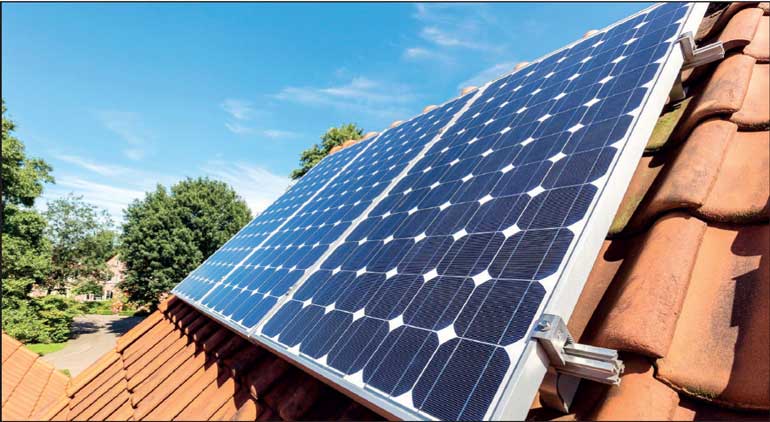Saturday Feb 21, 2026
Saturday Feb 21, 2026
Friday, 23 June 2023 00:04 - - {{hitsCtrl.values.hits}}

It is praiseworthy that the citizens of this country have individually embarked on resolving their power needs and costs using solar heating units and solar electricity generation units
By Chula Goonasekera
According to media reports, our Government is spearheading another ‘white elephant project’ seeking a nuclear energy plant from a world leader, Russia, currently involved in a significant war. They do not consider examining our strengths of producing electricity instead of embarking on a journey to exchange fossil fuel import for uranium import.
Firstly, it is best to agree on long-term agreements with foreign nations at times of peace. Secondly, this would only ensure that our ‘dollar’ crisis would persist for decades, as it will be another 10 years at least before we produce any electricity from this project. But, we the citizens (not our leaders signing the deal) would be obliged to repay the debt we fought tooth and nail to get, just as we do now to resolve debt obligations of the many disastrous, non-returnable projects our past governments installed purely to pander to their whims.
Since introducing hydro-power projects, Sri Lanka’s Government-led effort has been in one direction, producing thermal energy using imported fuel such as diesel, coal and nuclear energy plants. The latter needs more imported fuel, uranium. All of the above consume our sparse foreign reserves, due to the existing debt trap and negative equity.
Why do we not focus on energy production based on our energy resources, such as sunlight, wind power and hydro-power? These local resources are within the ‘renewable energy’ category and fall within the environmental requirement the Government has agreed to promote. This short letter is a citizen’s proposal the Government can consider at individual or corporate level without committing to large-scale national projects that need large reserves of public money that will explode our indebtedness.
It is praiseworthy that the citizens of this country have individually embarked on resolving their power needs and costs using solar heating units and solar electricity generation units. The users of these small-scale power and heat generation units are delighted with the service it provides them and the savings they have made in their household costs. Such small local units not only save power for the country by not taxing the national grid but also provide an opportunity to sell the extra energy they produce to the national grid. This would help us reduce the dollars required to import fuel (diesel, coal and uranium), thereby saving the foreign reserves, which could be used for other national needs.
I strongly propose that the Government consider buying back energy from local households or village generators at the cost of its current production at the Ceylon Electricity Board. This would prompt more people to install renewable energy plants in their homes or as a corporate project in their villages at their own cost. Many Sri Lankans are knowledgeable and understand the technical know-how. The Government can expand these facilities by promoting training programs and incentives for such workers based on the volume of work undertaken.
Some of these proposals can be implemented almost immediately without waiting for the proposed nuclear power plant to generate power, which is costly, risky and would be delayed by at least 10 years. I suggest the following proposals in this endeavour:
Promote importation or local production of the equipment necessary for installing solar panels, solar heaters, wind power units and even hydro-power units in homes or villages with abundant sunlight, flowing water or adequate wind power.
Arrange an easy strategy to buy back the extra energy that local homes and the corporate produce at production cost currently required for power generation in national plants such as diesel and coal.
Promote energy consumption produced locally – for example, importing electrically powered vehicles that can be charged at home using locally installed power sources. Combining the electric vehicle import and power generation units would promote renewable energy plants at home and transportation with locally produced energy. This would reduce the need for fossil fuels for transportation and reduce dollars needed to import petrol, diesel, kerosene, etc., for transport.
These transparent small-scale energy production units would curb the Government’s loss due to covert and overt corruption practices linked to over-invoicing.
As citizens we have to speak up on behalf of all concerned for the nation’s well-being and promote this activity by communicating with our local Members of Parliament and the President.